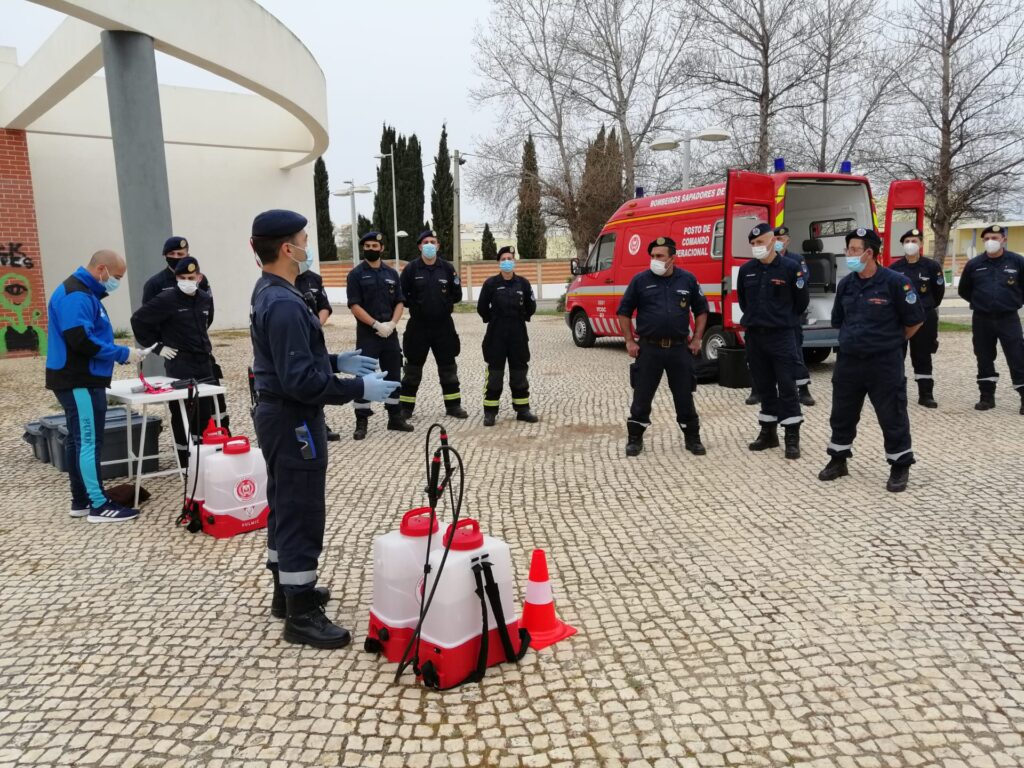The Firefighters of Faro received, from March 30th to April 1st, new training in biological risks and decontamination of spaces and infrastructures.
This action, which takes place within the scope of the Covid-19 pandemic, will qualify the entire fire department with skills and competences in this area.
According to the Chamber of Faro, the «training action was given by trainers from the Escola do Regiment Sapadores Bombeiros de Lisboa, following the close institutional collaboration existing between these two professional fire brigades and through a protocol signed between the Municipality of Faro and the Municipality of Lisbon, which aims to exchange knowledge and training in the areas of protection and relief».
The Fire Brigade Sapper of Faro it already had about 15 elements trained in the area of biological hazards and decontamination of spaces and infrastructures - obtained in May last year after an action given in Faro also by trainers from the Lisbon Sapadores Bombeiros Regiment School –, who have already been called for various actions to disinfect spaces in the municipality.
The training now provided covered the entire staff of Sapadores de Faro, which thus gain competences in the assessment of biological risks, decontamination, creation of decontamination corridors, intervention in hazardous substances, risk analysis, personal protection equipment, respiratory protection, among others.
The training ended on April 1st, with an internal exercise, which took place at the Bombeiros Sapadores de Faro, covering several scenarios and involving means and resources that Firefighters Sapadores have and that enable the operation in several occurrences simultaneously.
With this training, Firefighters Sapadores became the first fire brigade in the country to train all of its operations in the specific area of biological hazards.



















Comments